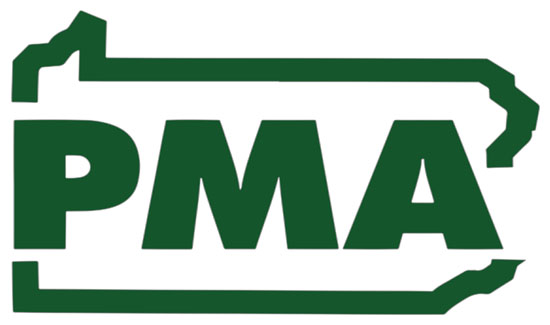Tax Change Proposals Perfect Fit for Gov. Shapiro’s Growth Agenda

Governor Josh Shapiro has a prime opportunity early in his tenure to fulfill a campaign promise to invest in Pennsylvania and keep the working talent here instead of fleeing for better opportunities in other states.
The governor should throw his support behind legislation in the Senate that would elevate Pennsylvania out of the dismal basement among states regarding a tax provision that’s a disincentive for businesses to locate here. And without the businesses, workers have no reason to stay. It’s the net operating loss (NOL) provision that allows businesses to carryover losses incurred in one year to future tax years, and it’s especially helpful to startups that typically lose money in their first years of business.
Increasing how much a business can carryover would hardly be a radical tax idea for Pennsylvania. The Commonwealth’s cap at 40 percent is at the bottom of states, and far shy of what the federal government allows — deductions at 80 percent of taxable income. Many states set no cap deduction limits at all. Only New Hampshire has a cap even remotely similar to Pennsylvania, but it’s at $10 million rather than our 40 percent.
Legislation, SB 346, set on the Senate calendar for June 5, sponsored by Sens. Greg Rothman (R-Cumberland), Ryan Aument (R-Lancaster) and Tracy Pennycuick (R-Montgomery) will increase the NOL deduction limit to 80 percent over four years.
“The current restriction hurts Pennsylvania job creators and turns away businesses that might otherwise choose to locate in our state,” the senators said in a statement when introducing the legislation. “For Pennsylvania to compete nationally and attract new businesses, we must address this anti-growth policy.”
To be sure, the Commonwealth’s coffers would likely realize a temporary decrease, but as PMA President & CEO David N. Taylor explained, the short-term losses will be well worth the enhanced future returns.
“To fix Pennsylvania’s structural budget deficit, we must keep and attract more working-age citizens, which will require more private sector investments and jobs, which will require reforms like CNI and NOL relief,” Taylor said. “Remembering that tax rates and tax collections are different things, experience has shown that tax rates that optimize economic growth will help businesses start and expand, ultimately bringing in greater collections to the state treasury.”
The change will help keep billions in potential earnings, and taxes, from walking out the door, as is currently happening. IRS figures cited by the Commonwealth’s Foundation Nathan Benefield in a recent commentary showed that from 1992 to 2019, Pennsylvania lost a total of $106 billion in income from domestic outmigration. Another analysis reveals that Pennsylvania lost $1.2 billion in income due to domestic outmigration between 2019 and 2020 alone.
“New data from the Census Bureau reveal that residents are fleeing Pennsylvania at an alarming rate,” Benefield wrote. “Pennsylvania lost nearly 40,000 residents to other states from July 2021 to July 2022 Only seven states lost more residents to outmigration during the same period.”
An excellent analysis by the Pennsylvania Chamber of Business and Industry offers a hypothetical example of the difference an up-to-date NOL provision would make to an aspiring business:
In its first year of operation (2023), the Company had significant start-up costs and recorded a $50 million loss. Once the business started generating sales, they earned a $75 million profit in 2024. Under Pennsylvania’s antiquated NOL rules, the company is limited to reducing their taxable liability in 2024 to 40 percent of their taxable income ($75M x 40% = $30M). Unable to deduct the full amount of losses carried forward from the previous year, they end up paying $3.82 million in taxes, an effective tax rate of 15.28 percent! In the other state, the company can deduct up to 80 percent of taxable income ($75 x 80% = $60). Because this amount is greater than the $50 million loss carried forward from the previous year, the company can deduct the full $50 million loss. This results in a total tax liability of $2.12 million, or an effective tax rate of 8.49 percent. If you had the option between two states to start a company, would you choose Pennsylvania where you will pay $1.7 million more in taxes and an effective tax rate that is 80 percent higher?
In addition, the Tax Foundation’s Senior Policy Analyst Timothy Vermeer said that broadening the NOL provision would encourage responsible entrepreneurial risk-taking and set conditions for economic growth and innovation.
“You have to look at the whole economic picture in a state but the NOL provision in Pennsylvania is definitely related to people not sticking around,” he said.
On the campaign trail, candidate Shapiro said many things to suggest he is serious about improving Pennsylvania’s competitiveness. He stated multiple times that we need to accelerate the lower of Pennsylvania’s corporate net income tax rate to 4.99% by 2026.
Senate Bill 345, sponsored by Senator Ryan Aument (R-Lancaster) also on the Senate calendar for June 5, would do just what Governor Shapiro asked for; a reduction of the CNI to 4.99 percent by 2026.
“As governor, I’ll lead the way to reignite our economy, ensuring businesses come to Pennsylvania and stay here, making our commonwealth a national leader for innovation, manufacturing, and job creation,” Shapiro said in a statement released on the campaign trail.
The proposed NOL change and the accelerated reduction of the CNI fits perfectly into the governor’s welcome economic growth agenda.
Send a letter to your PA State Senator and urge them to vote to improve PA’s business taxes.




